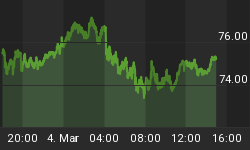Over the past few decades, the United States has steadily evolved from a nation of 'producers' to one of 'consumers'. The change has been celebrated by politicians and economists as proof of America's arrival at the top of the global economic food chain. In reality, the development has depleted the nation of its hard-earned wealth, and has led us to the brink of ruin.
But rather than encouraging a return of America's productive energy, our government is responding to the growing economic crisis by simply trying to boost consumerism at all costs. Their strategy involves socializing losses among all citizens so that the depletion can't be easily discerned.
Now that the nation has chosen socialism as its economic salvation, it is worthwhile to examine some historic precedents. They are not encouraging. Europe, the former Soviet block and much of Africa and Asia, show vividly that socialism curbs individual freedom and enterprise, and leads inevitably toward economic decline.
America was blessed both with abundant natural resources and individual freedom, the backbone of enterprise. The combination rendered American productivity the envy of the world. Based on the strength of our industry and productivity, the American Treasury became the world's largest.
Why would America swap a history of successful capitalism for a murky future of socialism? The Answer is politics.
When the vast majority of the country's private sector working population is employed in the service sector, then votes tip in favor of consumerism. This is happening in America. Consumer spending now accounts for 72 percent of Gross Domestic Product (GDP), and is viewed as the engine of our continued prosperity.
Over the past decade, when recession threatened to curtail spending, the government pumped hundreds of billions of dollars into the economy. This led to two massive liquidity-driven booms; first in technology, then in housing. During these booms, greed knew few bounds and leverage became a way of life.
But when the merry-go-round stalled, politicians did not, and will not, allow the normally corrective mechanism of a recession to operate. It is trying to take the pain out of capitalism, while leaving only the pleasure. This is impossible.
In the current attempt at a market correction, the government has decided that our bloated financial companies are "too big to fail". As a result, the government has lent billions of taxpayers' dollars to bail out Wall Street and the mortgage industry. Some investment banks were given privileged access to the 'Fed Window' to borrow unlimited amounts of money, secured by 'junk' securities and at the lowest (negative) interest rates, well below the level of inflation. In addition, the shares of the larger financial companies were also given special 'short-selling' trading protections.
It is important to note that these protections were not given to other industries, and were not even extended to the entire financial industry. Those receiving the public largesse are precisely the large institutions most responsible for the mess. It was the financial and corporate fat cats who made the private profits gleaned from massive, irresponsible lending and borrowing. Yet, when it comes to rescue, the ordinary citizen pays.
Declining corporate earnings, increased government intervention and higher taxes are tell-tale symptoms of socialism. They can now be expected in America, bringing downward pressure on U.S. government paper and equities. Recession in America will likely reverberate around the world, bringing worldwide strain to economies and equities.
Let us hope that the rest of the world will not follow America's example and head down the road toward socialism. Economies adopting a free market approach are likely to far outperform those embracing the discarded doctrines of financial failure.
For a more in depth analysis of our financial problems and the inherent dangers they pose for the U.S. economy and U.S. dollar denominated investments, read Peter Schiff's book "Crash Proof: How to Profit from the Coming Economic Collapse." Click here to order a copy today.
More importantly, don't wait for reality to set in. Protect your wealth and preserve your purchasing power before it's too late. Discover the best way to buy gold at www.goldyoucanfold.com, download our free research report on the powerful case for investing in foreign equities available at www.researchreportone.com, and subscribe to our free, on-line investment newsletter at http://www.europac.net/newsletter/newsletter.asp.















